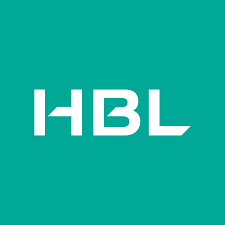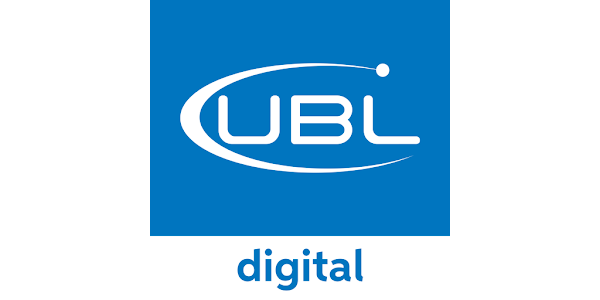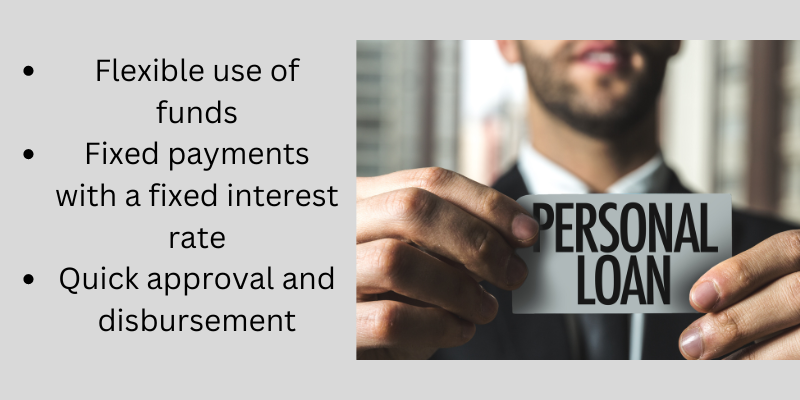Unlock Your Financial Potential with Personal Loans
Updated: 27 Sep 24
23
Personal loans are specifically designed to meet individual financial needs, providing borrowers with funds to address various personal expenses, such as consolidating debt, financing vacations, or handling emergencies. These loans are incredibly versatile, allowing individuals to use the money for nearly any personal reason, whether it’s covering unexpected medical bills, making home improvements, or funding large purchases like weddings or home appliances.
Interest rates on personal loans can be either fixed or variable. Fixed rates remain constant throughout the loan term, providing predictable monthly payments, while variable rates fluctuate based on market conditions, which could lead to changes in the monthly repayment amount. Generally, interest rates for personal loans range from 5% to 36%, with lower rates reserved for individuals with strong credit and higher rates applied to those with lower credit scores.
Repayment terms for personal loans usually span from 1 to 4 years, though some lenders may offer terms as long as 7 years. Shorter repayment periods mean higher monthly payments but less total interest paid over time. On the other hand, longer terms reduce monthly payments but increase the overall interest cost of the loan.
2024 Personal Loan Offerings: A Comparative Guide to Pakistani Banks
| Bank | Loan Amount | link | Repayment Tenure | Eligibility |
| Habib Bank Limited (HBL) | 25000 to 30,00,000 |  https://www.hbl.com/personal/loans/hbl-personal-loan | 12 months to 48 months | Salaried individual whose salary is being credited to HBL account Applicant to be 21 years or more at the time of loan application and 60 years or less at the time of loan maturity |
| United Bank Limited (UBL) | Maximum Limit: Up to Rs. 3 million |  https://www.ubldigital.com/Loans/Consumer-Loans/UBL-Cash-Plus | Tenor: 1-4 years | Minimum Net Income: Rs. 40,000 Age: 21 – 60 years Salaried individuals whose salaries are being credited in UBL or any other bank in Pakistan |
| MCB Bank | PKR 50,000 Up to PKR 2 Million |  https://www.mcb.com.pk/personal/consumer-loans/personal-loan | 1 – 4 years | Salaried individuals working in The private sector, government of Pakistan and armed Forces |
Personal loans can be either secured or unsecured. Secured personal loans require collateral, such as a vehicle or savings account, and generally come with lower interest rates since the lender has some form of security. Unsecured personal loans do not require collateral but often carry higher interest rates because they pose a higher risk to the lender. For unsecured loans, approval and rates are largely dependent on the borrower’s credit score and financial standing.

Borrowers should also be aware of additional fees associated with personal loans, such as origination fees (charged for processing the loan), prepayment penalties (for paying off the loan early), and late payment fees. Understanding these details can help borrowers choose the best loan option to suit their needs while managing the costs effectively.
Pros and cons of personal loans:
| What are the Pros of personal loans? |
|---|
|
| What are the Cons of personal loans? |
|---|
|
How to Effectively Use a Personal Loan
Personal finance plays a crucial role in managing various life events and unexpected expenses. It’s essential for handling emergencies, such as sudden medical bills or urgent home repairs, where immediate access to funds is required. Additionally, personal loans can be used to pay off debts, helping consolidate high-interest payments into one manageable plan. Planning for significant life events, like marriage, can also benefit from personal finance strategies, ensuring you have the necessary funds without straining your savings. Whether it’s for home renovations, medical expenses, or handling uncertain situations, personal finance offers the flexibility to meet these needs responsibly.
Necessary Paperwork for Personal Loan Applications
Proof of Identity
A government-issued, verified copy of your Computerized National Identity Card (CNIC) is required to confirm your identity.
Income Verification
A verified copy of your most recent salary slip must be submitted to demonstrate proof of income and employment status.
Employment Confirmation
A letter from your employer may be necessary to confirm your employment details, tenure, and income, particularly for salaried individuals.
Agreement to Terms
Applicants are required to review and agree to the lender’s terms and conditions, which outline the loan’s interest rate, repayment terms, fees, and other important details.
Here are steps for the personal loan application process:
Step 1:Evaluate Your Financial Needs Before Taking a Loan.
Ensure that you truly need the loan amount, as you will be responsible for paying the interest. It’s crucial to have a genuine reason for the loan, as repayment is a key factor.
Step 2:Determine the Interest Rate Before Getting a Loan.
Before securing a loan, it’s crucial to first determine the interest rate you’ll be paying in the future. Make sure to assess your credit score to increase your chances of getting the best loan terms available.
Step 3:Compare Financial Institutions for Loan Terms and Interest Rates.
Evaluate each financial institution’s loan terms and interest rates. This approach will help you identify the best lender that suits your financial needs and offers the most favorable terms.
Step 4:Prequalify for Loan Offers Without Impacting Your Credit Score:
After following the first three steps, you can now explore the best loan offers. Prequalifying helps you view potential rates and terms without negatively affecting your credit score, allowing you to make an informed decision.
Step 5: Organize Required Documentation for a Smooth Loan Process
Once you’ve prequalified, ensure you have all necessary paperwork ready, such as proof of income, identification, and financial records. Being prepared with these documents will make the loan application process faster and more efficient.
Step 6:Complete the Loan Application and Submit the Forms:
Attach all the necessary forms and documentation to finalize your loan application. Ensure that everything is filled out accurately to avoid delays in the approval process.
Step 7:Carefully Review Loan Terms and Conditions.
At this crucial step, take the time to thoroughly examine all the terms and conditions of the loan. Understanding the details will help you make an informed decision.
Step 8:Sign the Loan Agreement Form.
Once you’ve reviewed and understood all the terms, proceed to sign the loan agreement form. This final step formalizes your commitment to the loan and initiates the disbursement process.
Step 9:Receive Funds and Manage Your Loan Wisely:
After receiving the loan amount, allocate the funds according to your intended purpose, whether it’s for paying expenses, medical bills, or travel. Proper management of your loan will ensure that you meet your financial goals effectively.
Final Thoughts:
Ultimately, the decision is yours. Gather all the necessary bank details to identify the best option for you and choose accordingly. Take your time to compare rates and terms, ensuring they align with your financial goals. Making an informed choice will set you on the path to successful loan management.
Please Write Your Comments